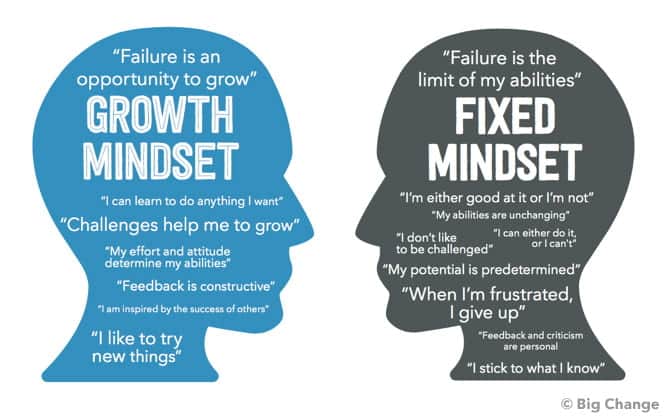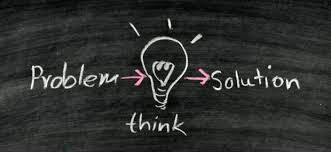The Power of the Right Mindset, the Correct Skillset, and the Needed Habits for Results.
In today’s fast-paced world, achieving desired results requires more than just having the right skillset. It’s about adopting the right mindset and cultivating the necessary habits that propel success. This article delves into the power of the combination of mindset, skillset, and habits in driving exceptional outcomes.
The Importance of Mindset, Skillset, and Habits
Success is not solely determined by skills and knowledge alone. While having the right skillset is undeniably important, it is equally crucial to possess the right mindset and cultivate effective habits. Mindset refers to one’s attitudes, beliefs, and thought patterns, while skillset encompasses the specific abilities and expertise required for a particular task or profession. Habits, on the other hand, are the consistent behaviors and routines that shape our actions and outcomes.

Developing a Growth Mindset
Having a growth mindset is the foundation for achieving extraordinary results. This mindset is characterized by believing in one’s ability to grow and learn, embracing challenges as opportunities for growth, and persisting in the face of setbacks. Individuals with a growth mindset understand that intelligence and talent can be developed through dedication and effort.
To develop a growth mindset, embracing a lifelong learning mentality is essential. This involves seeking new experiences, being open to feedback and constructive criticism, and reframing failures as learning opportunities. By adopting this mindset, individuals unlock their potential for continuous improvement and are more likely to achieve their desired results.
The Key Skills for Success
While mindset plays a crucial role, possessing the right skillset is equally important. The key skills required for success vary depending on the goals and aspirations of individuals. However, some universal skills are essential in almost every domain. These include effective communication, problem-solving, adaptability, creativity, and critical thinking.
To acquire and improve these essential skills, individuals can engage in various strategies. These strategies may include formal education, attending workshops and training programs, reading books, and seeking mentorship or guidance from industry experts. Additionally, practicing these skills in real-world scenarios and actively seeking opportunities to apply them can significantly enhance proficiency.
The Role of Habits in Achieving Desired Results
Even with the right mindset and skillset, achieving desired results can be challenging without consistent and purposeful habits. Habits act as the building blocks of success, providing structure, discipline, and focus. By developing productive habits and eliminating unproductive ones, individuals create an environment conducive to high performance.
Building positive habits starts with identifying the behaviors and routines that align with desired outcomes. This may involve setting specific goals, breaking them into actionable steps, and establishing a daily routine supporting progress towards those goals. Consistency and accountability are crucial in habit formation, as they help individuals stay on track and overcome challenges.
Building Positive Habits for Success
To build positive habits, individuals can utilize various strategies. One practical approach is to start small and gradually increase the difficulty level. This allows for a gradual adjustment and minimizes the chances of overwhelm or burnout. Creating a supportive environment, such as surrounding oneself with like-minded individuals or seeking an accountability partner, can greatly enhance habit formation.
Another helpful strategy is to utilize habit stacking, which involves attaching a new habit to an existing one. By piggybacking on an already established routine, individuals increase the likelihood of consistently practicing the desired behavior. Additionally, tracking progress and celebrating small wins along the way can provide motivation and reinforcement.


Overcoming Mindset Barriers and Limiting Beliefs
While developing a growth mindset is essential, individuals may encounter mindset barriers and limiting beliefs that hinder their progress. These barriers often manifest as self-doubt, fear of failure, or a fixed mindset. Overcoming these obstacles requires self-awareness, challenging negative thoughts, and reframing limiting beliefs.
One effective way to overcome mindset barriers is through positive self-talk and affirmations. By replacing self-critical thoughts with positive and empowering statements, individuals can shift their mindset towards a more optimistic and growth-oriented perspective. Additionally, seeking support from mentors, coaches, or therapists can provide guidance and help individuals navigate through mindset challenges.
Strategies for Maintaining a Growth Mindset
Maintaining a growth mindset requires ongoing effort and commitment. Some strategies that can help individuals sustain this mindset include practicing gratitude, embracing curiosity and seeking new learning opportunities, and cultivating resilience. It’s also important to remember that setbacks and failures are part of the learning process and should be viewed as opportunities for growth.
Regular self-reflection and introspection can also contribute to maintaining a growth mindset. This may involve journaling, meditation, or engaging in activities that promote self-awareness. By consistently evaluating one’s thoughts, beliefs, and behaviors, individuals can identify areas for improvement and continuously evolve.
Cultivating the Right Skillset for Your Goals
To cultivate the right skillset for your goals, it’s crucial to have clarity about what you want to achieve. Start by setting specific and measurable goals that align with your aspirations. Once you have identified your goals, break them down into smaller, manageable steps.
Next, assess the skills required to achieve those goals. Identify the gaps in your current skillset and create a plan to acquire or improve those skills. This may involve enrolling in relevant courses, attending workshops or conferences, seeking mentorship, or gaining practical experience through internships or volunteering.
Remember that skill development is an ongoing process, and it’s important to stay updated with the latest trends and advancements in your field. Continuously seek opportunities to refine and expand your skillset to ensure you remain competitive and adaptable in an ever-changing world.
Conclusion: Harnessing the Power of Mindset, Skillset, and Habits for Lasting Results
In conclusion, achieving exceptional results requires more than just possessing the right skillset. It’s about adopting a growth mindset, cultivating productive habits, and continuously developing the necessary skills. By harnessing the power of mindset, skillset, and habits, individuals can unlock their full potential and achieve remarkable outcomes in their personal and professional lives.
Remember, success is not an overnight phenomenon but rather a journey of continuous improvement. Embrace challenges, persist in the face of setbacks, and remain dedicated to honing your skills, cultivating positive habits, and nurturing a growth-oriented mindset. With the right combination of mindset, skillset, and habits, you have the power to achieve lasting results and create a life of fulfillment and success.

